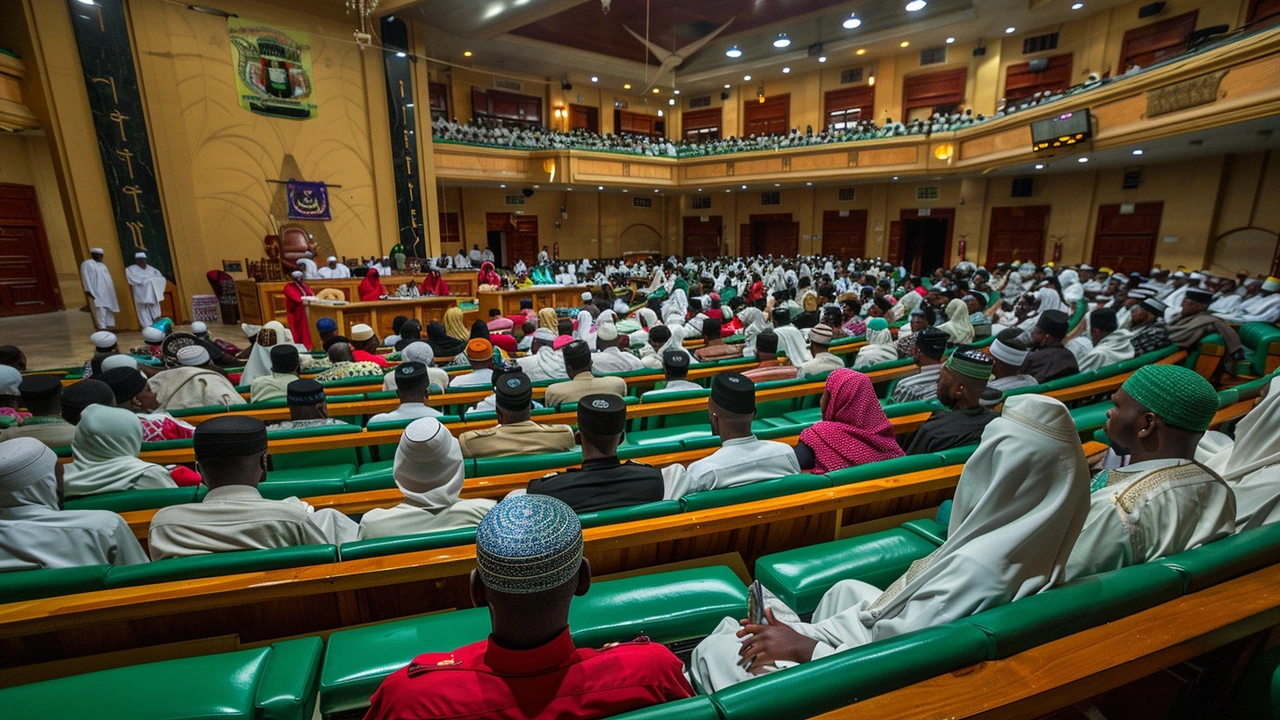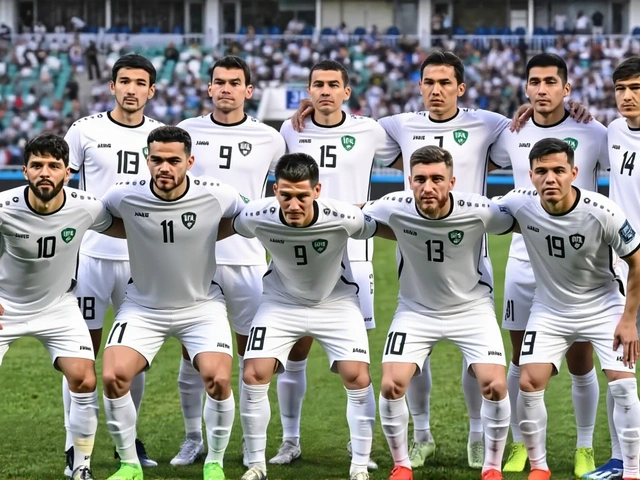Kano State Reverses Creation of Five Emirates, Returns to Single Traditional Ruler
The political landscape in Kano State has undergone a significant shift. The Kano State House of Assembly has repealed the controversial law that divided the state into five Emirates. This law, initially enacted in 2019 by former governor Abdullahi Umar Ganduje, was aimed at decentralizing the ancient Kano Emirate into five smaller domains. However, the move has now been rolled back, effectively removing all Emirs except for the central Emir of Kano.
On Thursday, the Assembly passed the bill to abolish the Emirates, an act that signifies a return to the traditional governance system predating Ganduje's tenure. The bill was led by Majority Leader Lawal Hussaini Chediyar Yan Gurasa, who vocalized the general sentiment that the fragmented Emirates had led to divisiveness among the Kano populace.
“The law that created these Emirates contravened the unity among our people,” stated Chediyar Yan Gurasa. His remarks echoed the feelings of a large section of Kano's residents who viewed Ganduje's splitting of the Emirate as a political move rather than one of necessity. By reverting to a single Emirate, the current Assembly believes it is promoting unity and cohesiveness among Kano's diverse communities.
A Sudden Change Recalling Ancient Traditions
The House's decision to overturn the creation of the additional Emirates has provoked discussions on the power dynamics within Kano. With the passage of this bill, the state's governance sees a profound return to its original structure. The governor is now tasked with nominating a new central Emir from traditional kingmakers—an authority that emphasizes the importance of customary protocols and historical significance in Kano's socio-political fabric.
Despite the apparent shift in governance structures, Kano's indigenes have to adapt to the sudden political reconfiguration. As no Emirs currently hold office in the state’s smaller domains, the state is in a liminal phase, awaiting the new central Emir's nomination. This transition may involve various socio-political adjustments as stakeholders reassess their positions within the new/old power structure. It's equally crucial that the government ensures this transition aligns with the wishes and well-being of the Kano people.
Historical Splitting Revisited
Ganduje's 2019 decision to carve up the ancient Kano Emirate into five different areas was controversial from the outset. Critics argued that the splitting was performed to weaken the political strength of the then-central Emir, Muhammad Sanusi II, who had been a vocal critic of Ganduje's administration. This fracturing was seen by many as a move to dilute the influence of Kano's traditional powers, creating smaller kingdoms that were easier to control politically.
However, this decentralization came at a cost. Many residents felt a deep sense of loss, seeing the age-old traditions of the Kano Emirate altered. The resulting Emirates often caused confusion and sometimes friction among their subjects, causing many to question the necessity and wisdom of Ganduje's move. By reinstating the single Emirate system, the Assembly aims to correct this perceived historical wrong.
Call for Unity and Peace
Lawal Hussaini Chediyar Yan Gurasa stressed the importance of unity and cooperation among Kano's people during this transition. “This is not just about leadership; it is about maintaining the social fabric that binds us together,” he stated during the announcement. He urged the residents to support this change, emphasizing that a united Kano is stronger and capable of facing its internal and external challenges more effectively.
As the bill awaits the governor's assent, much anticipation fills the air. This act will not only change who holds the title of Emir but also impact the entire governance structure of Kano. The central Emir of Kano holds a highly symbolic and influential position, serving as a unifying figure for the people. The institution of a single Emirate is expected to streamline leadership, traditional practices, and ensure a more cohesive community.
Looking Ahead
As Kano stands on the brink of this significant transformation, many wonder what the future holds. The authority of the Emir, as well as his ability to impact socio-political and cultural matters, is significant. This move to revert to a single Emirate carries historical weight, evoking the days when the Emir of Kano was a central figure not just in Kano but also in the broader northern Nigerian and Hausa society.
The broader implications of this shift on administrative efficiency, regional stability, and cultural preservation remain to be fully seen. However, there is a general air of optimism. Many believe that by revisiting the traditional system, Kano stands a better chance at nurturing unity, sustaining peace, and promoting collective progress.
Overall, this bold move by the Kano State House of Assembly suggests a strong desire to restore a sense of historical pride and cultural identity among its people, while rectifying what many saw as an unnecessary fragmentation of their traditional institutions. This serves as a reminder of the enduring importance of tradition, even in an ever-modernizing world.







Alex Soete
What a pivotal move for Kano! Restoring the single Emirate not only honors centuries‑old tradition but also sends a clear signal that unity outweighs political fragmentation. The legislative reversal should help mend the social fabric that was stretched by the five‑emirate experiment. I hope the transition proceeds smoothly and the community feels heard.
Cara McKinzie
OMG this is total dramma, lol!
Joseph Conlon
The re‑centralization of the Kano Emirate, while presented as a unifying gesture, may inadvertently concentrate power in a manner that stifles local representation. Historically, the division into five emirates was an attempt-albeit controversial-to distribute authority more evenly across distinct cultural zones. By dismantling those sub‑structures, the state risks erasing the nuanced identities that have emerged over the past few years. Moreover, the rapid legislative swing could be interpreted as a political maneuver rather than a genuine reconciliation. Scholars of Nigerian governance have long warned that abrupt top‑down reforms without grassroots consultation sow distrust. In the case of Kano, the central Emir’s influence already eclipses that of local chiefs, making any further consolidation a potential overreach. Communities that adapted to the five‑emirate system have built administrative mechanisms that now face sudden nullification. The abruptness may also create a power vacuum, as former emirate officials scramble to find new roles. This transition period could see increased maneuvering among political elites seeking to capitalize on the uncertainty. While the bill’s proponents cite unity, they overlook the possibility that forced homogeneity can breed resentment. A more measured approach might have involved a phased integration, preserving beneficial local institutions while re‑aligning authority. The current move also raises questions about the governor’s future nominations and the balance of power between the state and traditional councils. If the central Emir is appointed without broad consensus, legitimacy concerns could resurface, echoing past conflicts. In sum, restoring a single emirate is not a panacea; it is a complex reshaping of a delicate sociopolitical ecosystem. Stakeholders would do well to monitor the implementation closely and ensure that the quest for unity does not eclipse the voices of the many sub‑communities that constitute Kano’s rich tapestry.
Mohit Singh
The old ways were better, period.
Damian Liszkiewicz
Restoring the single emirate feels like a breath of fresh air for the community 😊. It reminds us that shared heritage can bridge divides 👍. Let’s hope the transition respects the cultural depth of Kano.
Angela Arribas
The post contains several grammatical slips, such as missing commas after introductory phrases and inconsistent use of the term “repealed.” Proper punctuation would improve clarity, especially when describing legislative actions.
Sienna Ficken
Ah, the grand revival of the single Emirate-because nothing says progress like reverting to a centuries‑old hierarchy. It’s almost poetic how the political circus circles back to the same old tent.
Zac Death
That’s a solid analysis, Joseph. While the centralization may tighten power, it could also streamline decision‑making that benefitted citizens across Kano. Let’s keep an eye on how the local councils adapt.
Lizzie Fournier
Damian, totally agree-unity feels refreshing. It’ll be interesting to see how people blend tradition with modern community projects.
JAN SAE
Indeed, the legislative reversal, which was enacted, appears to be a decisive step, aiming to consolidate authority, reduce fragmentation, and reinforce cultural continuity, all while navigating complex political undercurrents.
Steve Dunkerley
From a governance framework perspective, the re‑centralization aligns with hierarchical diffusion models, potentially optimizing the administrative throughput and reducing the inter‑emirate coordination latency that previously hampered policy implementation.
Jasmine Hinds
Let’s rally behind this change! 🎉
Madison Neal
While the sarcasm is noted, the underlying hope for inclusive dialogue remains essential. Collaborative efforts can ensure the transition respects both tradition and progressive aspirations.
John Crulz
All in all, I’m curious to see how Kano balances its deep history with the demands of today’s governance. Time will tell what impact this will have on everyday life.